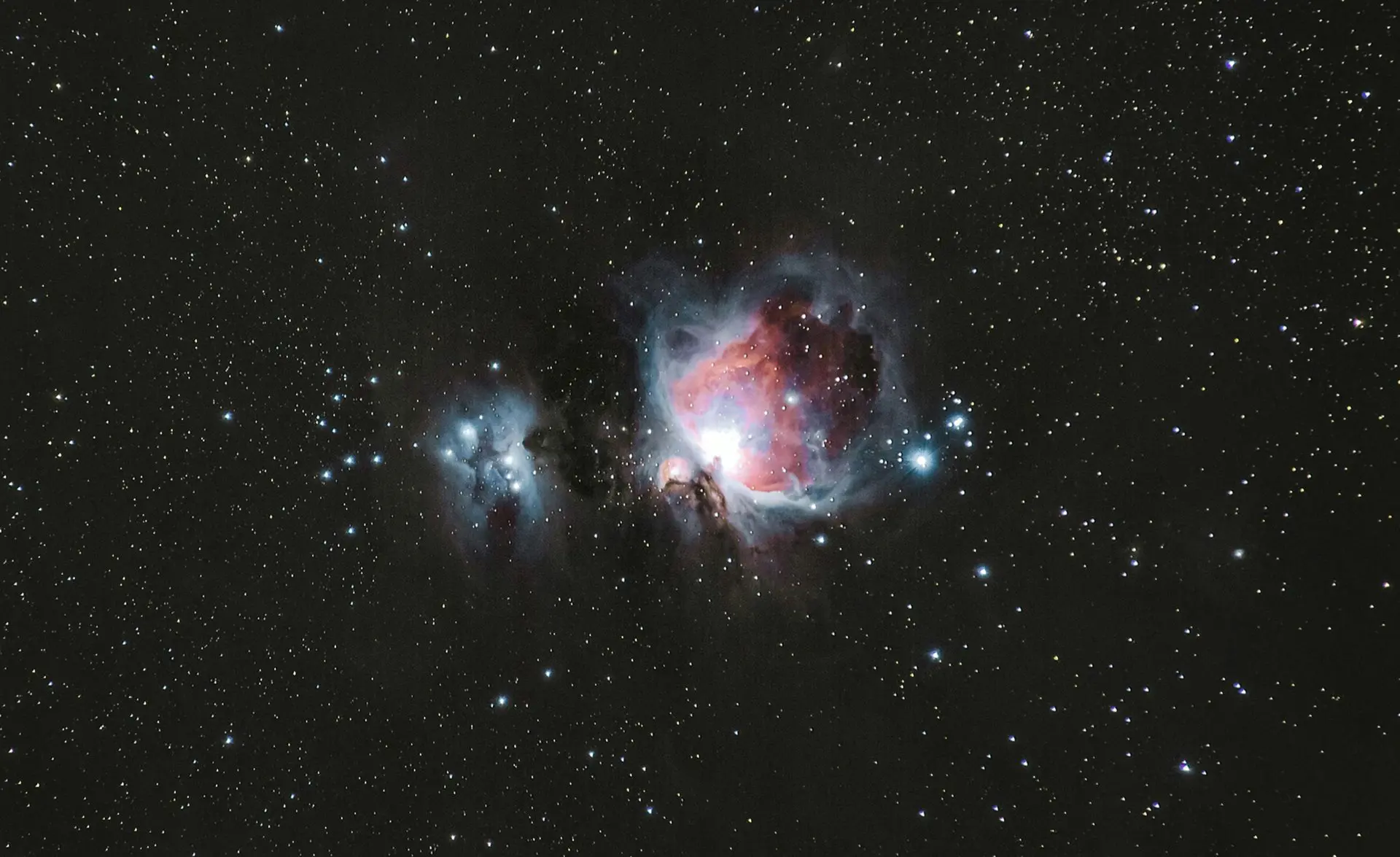Esotericism and Kabbalah: Jewish Mysticism

Looking for more amazing products? Check out our online store and explore our collection here! Happy shopping!
Before diving in, please note: This post is for informational purposes only. If you’d like to know more about how we approach topics, feel free to check out our friendly Disclaimer Page.
Hey there, amazing readers! 
We’re committed to delivering quality posts, and your support (even just sticking around despite the ads) means everything to us. So, bear with us, and thanks for helping us keep the good vibes rolling. Now, on to the fun stuff!
TRANSLATE BUTTON AT THE END OF THE ARTICLE
A Quick Overview
Esotericism, particularly in the realm of Jewish mysticism, delves into the hidden teachings and spiritual insights that go beyond the surface level of traditional religious practices.
Kabbalah, a form of Jewish mysticism, has intrigued scholars and spiritual seekers for centuries with its deep symbolism, complex teachings, and mystical practices.
In this article, we will unravel the secrets of esotericism and explore the world of Kabbalah to gain a better understanding of this ancient tradition.
Understanding Esotericism: An Overview
Esotericism refers to the pursuit of knowledge that is hidden or understood only by a select few.
In the context of Jewish mysticism, esoteric teachings aim to uncover the deeper meanings behind religious texts, rituals, and beliefs.
These teachings often involve complex symbols, numerology, and spiritual practices that are designed to enhance one’s connection to the divine.
Esotericism encourages individuals to look beyond the literal interpretation of religious teachings and seek a deeper understanding of the mysteries of existence.
Origins of Kabbalah in Jewish Tradition
Kabbalah has its roots in Jewish tradition, with its origins dating back to ancient times.
The word "Kabbalah" means "to receive" in Hebrew, emphasizing the idea that its teachings are passed down from generation to generation.
Kabbalistic texts first appeared in the medieval period, with scholars like Rabbi Isaac the Blind and Rabbi Moses de Leon playing significant roles in shaping Kabbalistic thought.
Over the centuries, Kabbalah has evolved into a complex system of esoteric teachings that seek to illuminate the nature of God, creation, and the human soul.
Key Concepts in Kabbalah and Mysticism
Kabbalah introduces several key concepts that form the foundation of its mystical teachings.
Some of the fundamental concepts in Kabbalah include:
The Sefirot: These are the ten divine attributes or emanations through which God reveals Himself to the world.
The Ein Sof: The infinite, unknowable essence of God that underpins all of creation.
The Four Worlds: These are the spiritual realms through which divine energy flows into the physical world.
The Shekhinah: The divine feminine presence of God that dwells among humanity.
These concepts provide a framework for understanding the nature of existence and the relationship between the divine and the material world.
The Tree of Life: A Symbol of Kabbalistic Wisdom
One of the most prominent symbols in Kabbalistic teachings is the Tree of Life.
This diagram consists of ten interconnected spheres representing the Sefirot and twenty-two paths connecting them, each corresponding to a letter of the Hebrew alphabet.
The Tree of Life serves as a map of the spiritual realms and the path to divine enlightenment.
By meditating on the Tree of Life, practitioners seek to harmonize the different aspects of their being and align themselves with the divine will.
Practices and Rituals in Jewish Mysticism
Kabbalistic practices encompass a wide range of rituals and spiritual exercises designed to deepen one’s connection to the divine.
Some common practices in Jewish mysticism include:
Meditation: By quieting the mind and focusing on divine symbols or mantras, practitioners seek to attain spiritual insights and connect with the divine.
Study of Kabbalistic texts: Delving into the rich tradition of Kabbalistic literature helps individuals gain a deeper understanding of mystical teachings and principles.
Observance of rituals: Kabbalistic rituals, such as lighting Shabbat candles or reciting specific prayers, are believed to enhance one’s spiritual practice and bring about positive changes in the material world.
These practices are designed to cultivate spiritual awareness and create a pathway for individuals to experience profound mystical insights.
Influence of Kabbalistic Teachings on Judaism
Kabbalah has had a profound influence on Jewish thought and spirituality throughout history.
The teachings of Kabbalah have enriched Jewish theology, providing new perspectives on the nature of God, creation, and the human soul.
Understand the Powerful Law of Karma and Its Impact – Explore Here!
Kabbalistic concepts have also influenced Jewish rituals and practices, infusing them with deeper mystical meaning.
Moreover, Kabbalah has inspired a rich tradition of Jewish mysticism that continues to resonate with spiritual seekers of all backgrounds.
Historical Figures in Kabbalistic Thought
Several key figures have played crucial roles in the development of Kabbalistic thought over the centuries.
Some notable historical figures in Kabbalah include:
Rabbi Isaac Luria: Known as the Ari, Rabbi Luria was a 16th-century mystic whose teachings on the Sefirot and the concept of Tikkun Olam have had a lasting impact on Kabbalistic thought.
Rabbi Moses de Leon: A medieval scholar who is believed to have authored the Zohar, a central text in Kabbalah that explores the mystical aspects of the Torah.
Rabbi Yitzchak Ginsburgh: A contemporary Kabbalist who has written extensively on the practical applications of Kabbalistic teachings in daily life.
These figures have contributed to the rich tapestry of Kabbalistic thought and continue to inspire spiritual seekers today.
Modern Interpretations of Esotericism
In the modern era, Kabbalah has taken on new forms and interpretations as spiritual seekers adapt its teachings to contemporary contexts.
Some modern interpretations of esotericism include:
Psychological Kabbalah: This approach applies Kabbalistic teachings to psychological theories and practices, emphasizing personal growth and self-discovery.
Ecological Kabbalah: Environmental activists have drawn on Kabbalistic concepts to promote ecological awareness and sustainability.
Feminist Kabbalah: Scholars have reinterpreted Kabbalistic texts from a feminist perspective, highlighting the role of women in Jewish mysticism.
These modern interpretations demonstrate the enduring relevance of Kabbalistic teachings in addressing contemporary issues and spiritual concerns.
Controversies Surrounding Kabbalah
Despite its deep spiritual insights and profound teachings, Kabbalah has not been without controversy.
Over the centuries, certain aspects of Kabbalistic thought have been misunderstood or misinterpreted, leading to debates and disagreements within the Jewish community.
Additionally, the rise of popularized versions of Kabbalah, such as the Kabbalah Centre, has sparked criticism from traditional scholars who view these interpretations as simplistic or commercialized.
These controversies underscore the challenges of navigating the complexities of esoteric teachings in a modern context.
Kabbalah in Popular Culture
Kabbalah has captured the imagination of artists, writers, and filmmakers, who have incorporated its symbols and teachings into popular culture.
From the mystical works of author Philip Berg to the iconic red string bracelet worn by celebrities, Kabbalah has become a source of inspiration and fascination for many.
Films, television shows, and music videos often feature Kabbalistic themes, bringing the esoteric teachings of Jewish mysticism to a wider audience.
While these popularized versions of Kabbalah may not always capture the depth and complexity of the tradition, they have helped to raise awareness of esotericism in mainstream culture.
Exploring the Divine through Esotericism
For those seeking more than just a surface-level understanding of spirituality, esotericism offers a pathway to deeper insights and mystical experiences.
By studying Kabbalah and engaging with its teachings, individuals can unlock the secrets of the universe and uncover hidden truths about the nature of existence.
Esotericism provides a framework for exploring the divine in a personal and transformative way, inviting seekers to delve into the mysteries of creation and consciousness.
Whether through meditation, study, or ritual practice, the journey of esotericism is a profound and enlightening exploration of the spiritual realm.
Studying Kabbalah: Resources and Recommendations
For those interested in delving into the world of Jewish mysticism, there are abundant resources available to guide their exploration of Kabbalah.
Some recommendations for studying Kabbalah include:
Reading foundational texts such as the Zohar, the Sefer Yetzirah, and the writings of Rabbi Isaac Luria.
Attending lectures, workshops, or classes on Kabbalistic teachings and practices.
Seeking guidance from knowledgeable teachers or mentors who can provide insights into the complex teachings of Kabbalah.
Engaging in personal spiritual practices, such as meditation, journaling, or prayer, to deepen one’s connection to the divine.
By immersing oneself in the rich tradition of Kabbalah and Jewish mysticism, individuals can embark on a transformative journey of self-discovery and spiritual growth.
Conclusion
In conclusion, esotericism and Kabbalah offer profound insights into the mysteries of existence and the nature of the divine.
By exploring the key concepts, practices, and historical figures of Kabbalistic thought, individuals can deepen their understanding of Jewish mysticism and spiritual wisdom.
While controversies and popularized interpretations may cloud the true essence of Kabbalah, the core teachings of esotericism remain a source of inspiration and guidance for those seeking to explore the depths of spiritual knowledge.
Through diligent study, contemplation, and practice, the journey of esotericism can lead to profound mystical experiences and a deeper connection to the sacred mysteries of the universe.

The Enlightenment Journey is a remarkable collection of writings authored by a distinguished group of experts in the fields of spirituality, new age, and esoteric knowledge.
Release the Weight of Karma and Embrace Freedom – begin here.
This anthology features a diverse assembly of well-experienced authors who bring their profound insights and credible perspectives to the forefront.
Each contributor possesses a wealth of knowledge and wisdom, making them authorities in their respective domains.
Together, they offer readers a transformative journey into the realms of spiritual growth, self-discovery, and esoteric enlightenment.
The Enlightenment Journey is a testament to the collective expertise of these luminaries, providing readers with a rich tapestry of ideas and information to illuminate their spiritual path.
Our Diverse Expertise
While our primary focus is on spirituality and esotericism, we are equally passionate about exploring a wide range of other topics and niches 

To ensure we provide the most accurate and valuable insights, we collaborate with trusted experts in their respective domains 
Our blog originally focused on spirituality and metaphysics, but we’ve since expanded to cover a wide range of niches. Don’t worry—we continue to publish a lot of articles on spirituality! Frequently visit our blog to explore our diverse content and stay tuned for more insightful reads.
Hey there, amazing reader! 
Check out our store here and take a peek at some of our featured products below! Thanks for being awesome!












